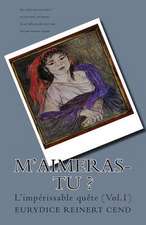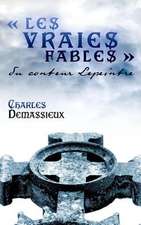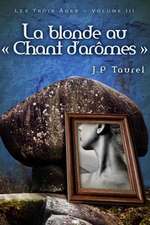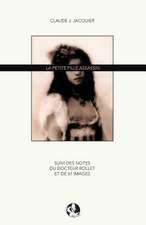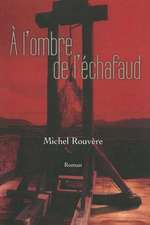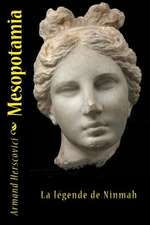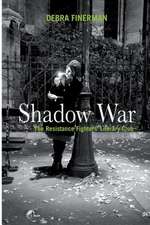The Hearth and Eagle
Autor Anya Setonen Limba Engleză Paperback – 19 iun 2014
| Toate formatele și edițiile | Preț | Express |
|---|---|---|
| Paperback (2) | 49.79 lei 3-5 săpt. | +26.54 lei 5-11 zile |
| Hodder & Stoughton – 19 iun 2014 | 49.79 lei 3-5 săpt. | +26.54 lei 5-11 zile |
| HMH Books – iun 2015 | 105.48 lei 3-5 săpt. |
Preț: 49.79 lei
Preț vechi: 64.32 lei
-23% Nou
Puncte Express: 75
Preț estimativ în valută:
9.53€ • 9.91$ • 7.87£
9.53€ • 9.91$ • 7.87£
Carte disponibilă
Livrare economică 24 martie-07 aprilie
Livrare express 08-14 martie pentru 36.53 lei
Preluare comenzi: 021 569.72.76
Specificații
ISBN-13: 9781444788266
ISBN-10: 1444788264
Pagini: 384
Dimensiuni: 131 x 197 x 28 mm
Greutate: 0.29 kg
Editura: Hodder & Stoughton
ISBN-10: 1444788264
Pagini: 384
Dimensiuni: 131 x 197 x 28 mm
Greutate: 0.29 kg
Editura: Hodder & Stoughton
Notă biografică
Anya Seton was born in New York City and grew up on her father's large estate in Cos Cob and Greenwich, Connecticut, where visiting Indians taught her Indian dancing and woodcraft. One Sioux chief called her Anutika, which means 'cloud grey eyes', a name which the family shortened to Anya. She was educated by governesses, and then travelled abroad, first to England, then to France where she hoped to become a doctor. She studied for a while at the Hotel Dieu hospital in Paris before marrying at eighteen and having three children. She began writing in 1938 with a short story sold to a newspaper syndicate and the first of her novels was published in 1941. She died in 1990.
Extras
One
On the night of the great storm, the taproom at the Hearth and Eagle was deserted. Earlier that evening men had wandered in for beers or rum flip?—?shore men all of them now, too old to go out with the fishing fleet. They had drunk uneasily, the pewter mugs shaking in their vein-corded hands, while they listened to the rising wind. Ever more boisterous gusts puffed down the big chimney scattering fine ash over the scrubbed boards. In the Great Harbor two hundred yards away, the mounting breakers roared up the shingle, muffling the clink of mugs on the table and the men’s sparse comments.
Hesper, crouching on her stool in the kitchen hearth, could see into the taproom through the half-open door. She watched her mother’s face. Ma stood stiffly behind the counter at the far end of the taproom, and she was listening to the storm too. Even while she made change for the beer drinkers or turned the spigot over a mug, her eyes would slide away to the windows, and her big freckled face grow glum and watchful.
This seemed queer to Hesper, because she herself loved the storm. She luxuriated in the delicious feeling it gave her because it was safe and warm in here. The kitchen, and the whole house, closed around and held her safe the way Gran did sometimes when she was feeling good. Outside, the storm was roaring and stamping like Reed’s bull roared and stamped in the pasture over on the Neck, but the bull couldn’t get at you, nor could the storm. The house was stronger.
Hesper pulled her stool outside of the fireplace and leaned her head against the paneled oak cupboard where Ma kept the spare pots and skillets.
The kitchen smells lulled her. The molasses-and-pork smell from the beanpots in the brick oven, the halibut stew bubbling softly on the trivet near the blazing pine logs, the smell of beeswax that had beenrubbed into the long oak table, and the benches and hard pine settle that was dreadful old-fashioned, Ma said. The settle had been right there by the fireplace near two hundred years, an eyesore Ma said, all scarred like that from jackknives and pitted with spark burns. But Pa wouldn’t get rid of it. He liked the old things that had always been here.
Another crash hurled itself on the house, and a new sound mixed in it. A slapping wetness. The window panes ran with water.
“Rain’s come,” said old Simon Grubb, wiping his mouth on the back of his hand. “Dor-r-ty weather makin’. Don’t like ’em from the sou’west. Means they start in the Carib. This is goin’ to be worser’n regular September line star-rm.” He heaved himself up from the table, slid three pennies on the counter by Ma’s arm. She picked them up and dropped them in the tin cashbox.
“Think it’ll travel up to the Banks?” she said. Her voice was just the way it always was, quick and rough, but a quiver ran through Hesper. The fear in her mother slid across the taproom, through the door into the bright kitchen. Now Hesper saw fear in all of them, in the three silent old men who did not answer her mother’s question but filed out the door, their steps slow and careful, feeling the floor as if they were pacing a heaving, slippery deck. While the door was open to let the shoremen out the storm blew into the house with the boom of the waves just across Front Street.
“Ma?—” whispered Hesper, “I’m scared?—” She ran to her mother, burying her face in the brown calico skirts. “Maybe the sea’ll get in?—don’t let it get at us.”
Susan Honeywood shoved the heavy iron bolt across the door. “It might,” she said indifferently. “But the house’ll stand.” She gave the child a brisk shove. “Get the mop. Floor’s all wet. Nothing’ll happen to us.”
“But you was scared, Ma?—” persisted the child, though already her panic had passed, the house closed around again, comforting and protecting.
Susan wiped the beer rings from the table in the taproom, shut that door, too, and stirred the halibut stew in the iron pot before speaking. Her words when they came seemed to spring from an angry compulsion. “Have you so soon forgot Tom and Will?” she snapped over her shoulder to the puzzled child.
Hesper stared up at her mother’s closed face, hurt by the sudden hostility, and yet she had always known Ma loved the boys better.
“But they’re away off on the Banks with the fleet?—” she whispered.
Susan slapped the pewter plates onto the table. “And so will this storm be?—tomorrow or next. It’s like the one in ’20, afore I met your Pa?—” Her full lips folded themselves into a pale line. She untied the apron from around her stout waist. “Call your Pa—?supper’s on. I’ll go in and see of your Gran’s got enough wit for eating tonight.”
Hesper swallowed, listening to her mother’s heavy tread entering the kitchen bedroom. Ma didn’t like Pa’s old granny but she didn’t usually sound so angry when she spoke of her?—most times when Gran acted queer, Ma’d be kind enough, feeding her from the silver porringer with the special silver spoon Gran always used, even rocking her in the long cradle when Gran got one of those fits when she’d cry and cry and think she was a baby again. Hesper loved Gran, loved her stories and her warm comforting arms on the good days, and accepted the bad days without wonder.
Hesper walked across the kitchen and knocked on her father’s door. He spent the greater part of his life in that little lean-to room that had been built for a loom room years before even Gran had come to the house. Only now it was just called “Pa’s room.” It had a desk and a Franklin stove, and so many books piled on the floor and up the walls that there was hardly place to stand.
Roger Honeywood opened the door at once?—sometimes he didn’t?—and smiled down at the child. His near-sighted eyes puckered around the corners, and his stooping shoulders seemed too frail to hold up the long thin body.
“It’s a wild night, Hesper.” He spoke dreamily, lingering over her name. From the moment of her birth in an April twilight he had loved this child as he loved no one else, and he had overridden his wife’s impatient objections, to name the baby Hesper, after the western star.
He touched the child’s red curls with his bony ink-stained fingers, and shambling after her into the kitchen, sat down at the table.
Hesper filled his plate with the steaming fish stew, which he pushed away absently, still held in the dreams that brightened his solitary hours.
Rough wind that moanest loud
Grief too sad for song;
Wild wind, when sullen cloud
Knells all the night long.?.?.
he repeated slowly.
Hesper was used to his quotations, and usually she liked the sound of them and the vague enchanted pictures they made in her mind, but tonight she felt sympathy with her mother, who entered the kitchen to hear the last lines.
“God-blost it, Roger!” she cried, “I’ll not stand for that quiddling poetizing tonight. What do you know of grief, or knells, or aught else, forever shut up in your room with them books!” She shoved his plate back in front of him, and banged the coffeepot down on the table.
Roger lifted his head and looked at her. “I merely thought, Susan, that Shelley had rather well expressed the mood of the night.” His tone strove to be sarcastic, and to show a gentlemanly reproof, though his hands trembled and he looked toward the child for the eager response she usually gave him. But Hesper was staring at her mother, who made a strange rough sound in her throat. “To hell I pitch your Shelley, whoever the bostard may be. D’you hear that storm out yonder? D’you have wit enough to know what it may mean, you buffleheaded loon?”
Her eyes were blazing, her heavy freckled face suffused with dull red.
Hesper saw her father retreat, seeming to shrivel into himself, but he said, “Spoken like a true Marblehead fishwife?—”
Again Susan made the sound in her throat?—?“?’Tis what I am. I come from fisher folk and so do you for all you never set foot in a dory these thirty year?—?for you weren’t no good as a fisherman?—nor no good at being a tavern keeper, neither—nor at being a fine gentleman at the college? —”
Hesper saw the color leave her father’s face, and she hoped for anger to replace it? — ?anger to match her mother’s. Why couldn’t he shout too?—hit out, even strike at that flushed, furious face across the table.
But there was silence in the kitchen except for the woman’s heavy breathing. Then outside, another gust threw itself against the house and a branch crashed off the big chestnut tree.
On the night of the great storm, the taproom at the Hearth and Eagle was deserted. Earlier that evening men had wandered in for beers or rum flip?—?shore men all of them now, too old to go out with the fishing fleet. They had drunk uneasily, the pewter mugs shaking in their vein-corded hands, while they listened to the rising wind. Ever more boisterous gusts puffed down the big chimney scattering fine ash over the scrubbed boards. In the Great Harbor two hundred yards away, the mounting breakers roared up the shingle, muffling the clink of mugs on the table and the men’s sparse comments.
Hesper, crouching on her stool in the kitchen hearth, could see into the taproom through the half-open door. She watched her mother’s face. Ma stood stiffly behind the counter at the far end of the taproom, and she was listening to the storm too. Even while she made change for the beer drinkers or turned the spigot over a mug, her eyes would slide away to the windows, and her big freckled face grow glum and watchful.
This seemed queer to Hesper, because she herself loved the storm. She luxuriated in the delicious feeling it gave her because it was safe and warm in here. The kitchen, and the whole house, closed around and held her safe the way Gran did sometimes when she was feeling good. Outside, the storm was roaring and stamping like Reed’s bull roared and stamped in the pasture over on the Neck, but the bull couldn’t get at you, nor could the storm. The house was stronger.
Hesper pulled her stool outside of the fireplace and leaned her head against the paneled oak cupboard where Ma kept the spare pots and skillets.
The kitchen smells lulled her. The molasses-and-pork smell from the beanpots in the brick oven, the halibut stew bubbling softly on the trivet near the blazing pine logs, the smell of beeswax that had beenrubbed into the long oak table, and the benches and hard pine settle that was dreadful old-fashioned, Ma said. The settle had been right there by the fireplace near two hundred years, an eyesore Ma said, all scarred like that from jackknives and pitted with spark burns. But Pa wouldn’t get rid of it. He liked the old things that had always been here.
Another crash hurled itself on the house, and a new sound mixed in it. A slapping wetness. The window panes ran with water.
“Rain’s come,” said old Simon Grubb, wiping his mouth on the back of his hand. “Dor-r-ty weather makin’. Don’t like ’em from the sou’west. Means they start in the Carib. This is goin’ to be worser’n regular September line star-rm.” He heaved himself up from the table, slid three pennies on the counter by Ma’s arm. She picked them up and dropped them in the tin cashbox.
“Think it’ll travel up to the Banks?” she said. Her voice was just the way it always was, quick and rough, but a quiver ran through Hesper. The fear in her mother slid across the taproom, through the door into the bright kitchen. Now Hesper saw fear in all of them, in the three silent old men who did not answer her mother’s question but filed out the door, their steps slow and careful, feeling the floor as if they were pacing a heaving, slippery deck. While the door was open to let the shoremen out the storm blew into the house with the boom of the waves just across Front Street.
“Ma?—” whispered Hesper, “I’m scared?—” She ran to her mother, burying her face in the brown calico skirts. “Maybe the sea’ll get in?—don’t let it get at us.”
Susan Honeywood shoved the heavy iron bolt across the door. “It might,” she said indifferently. “But the house’ll stand.” She gave the child a brisk shove. “Get the mop. Floor’s all wet. Nothing’ll happen to us.”
“But you was scared, Ma?—” persisted the child, though already her panic had passed, the house closed around again, comforting and protecting.
Susan wiped the beer rings from the table in the taproom, shut that door, too, and stirred the halibut stew in the iron pot before speaking. Her words when they came seemed to spring from an angry compulsion. “Have you so soon forgot Tom and Will?” she snapped over her shoulder to the puzzled child.
Hesper stared up at her mother’s closed face, hurt by the sudden hostility, and yet she had always known Ma loved the boys better.
“But they’re away off on the Banks with the fleet?—” she whispered.
Susan slapped the pewter plates onto the table. “And so will this storm be?—tomorrow or next. It’s like the one in ’20, afore I met your Pa?—” Her full lips folded themselves into a pale line. She untied the apron from around her stout waist. “Call your Pa—?supper’s on. I’ll go in and see of your Gran’s got enough wit for eating tonight.”
Hesper swallowed, listening to her mother’s heavy tread entering the kitchen bedroom. Ma didn’t like Pa’s old granny but she didn’t usually sound so angry when she spoke of her?—most times when Gran acted queer, Ma’d be kind enough, feeding her from the silver porringer with the special silver spoon Gran always used, even rocking her in the long cradle when Gran got one of those fits when she’d cry and cry and think she was a baby again. Hesper loved Gran, loved her stories and her warm comforting arms on the good days, and accepted the bad days without wonder.
Hesper walked across the kitchen and knocked on her father’s door. He spent the greater part of his life in that little lean-to room that had been built for a loom room years before even Gran had come to the house. Only now it was just called “Pa’s room.” It had a desk and a Franklin stove, and so many books piled on the floor and up the walls that there was hardly place to stand.
Roger Honeywood opened the door at once?—sometimes he didn’t?—and smiled down at the child. His near-sighted eyes puckered around the corners, and his stooping shoulders seemed too frail to hold up the long thin body.
“It’s a wild night, Hesper.” He spoke dreamily, lingering over her name. From the moment of her birth in an April twilight he had loved this child as he loved no one else, and he had overridden his wife’s impatient objections, to name the baby Hesper, after the western star.
He touched the child’s red curls with his bony ink-stained fingers, and shambling after her into the kitchen, sat down at the table.
Hesper filled his plate with the steaming fish stew, which he pushed away absently, still held in the dreams that brightened his solitary hours.
Rough wind that moanest loud
Grief too sad for song;
Wild wind, when sullen cloud
Knells all the night long.?.?.
he repeated slowly.
Hesper was used to his quotations, and usually she liked the sound of them and the vague enchanted pictures they made in her mind, but tonight she felt sympathy with her mother, who entered the kitchen to hear the last lines.
“God-blost it, Roger!” she cried, “I’ll not stand for that quiddling poetizing tonight. What do you know of grief, or knells, or aught else, forever shut up in your room with them books!” She shoved his plate back in front of him, and banged the coffeepot down on the table.
Roger lifted his head and looked at her. “I merely thought, Susan, that Shelley had rather well expressed the mood of the night.” His tone strove to be sarcastic, and to show a gentlemanly reproof, though his hands trembled and he looked toward the child for the eager response she usually gave him. But Hesper was staring at her mother, who made a strange rough sound in her throat. “To hell I pitch your Shelley, whoever the bostard may be. D’you hear that storm out yonder? D’you have wit enough to know what it may mean, you buffleheaded loon?”
Her eyes were blazing, her heavy freckled face suffused with dull red.
Hesper saw her father retreat, seeming to shrivel into himself, but he said, “Spoken like a true Marblehead fishwife?—”
Again Susan made the sound in her throat?—?“?’Tis what I am. I come from fisher folk and so do you for all you never set foot in a dory these thirty year?—?for you weren’t no good as a fisherman?—nor no good at being a tavern keeper, neither—nor at being a fine gentleman at the college? —”
Hesper saw the color leave her father’s face, and she hoped for anger to replace it? — ?anger to match her mother’s. Why couldn’t he shout too?—hit out, even strike at that flushed, furious face across the table.
But there was silence in the kitchen except for the woman’s heavy breathing. Then outside, another gust threw itself against the house and a branch crashed off the big chestnut tree.









